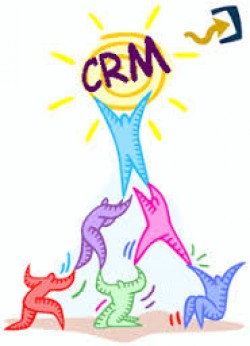

The importance of exceeding customer expectations
Customer service has never been so important, yet many firms seem to have lost sight of their customers' needs, argues customer service consultant Derek Bishop
Efficiency is a huge challenge for businesses. However, the drive for efficiency can jeopardise good customer service. In the pursuit of keeping costs as low as possible, many businesses have tried to standardise as much of their service delivery as possible. But the risk is that such organisations often become too mechanistic in their service delivery.
Customers are not generic and therefore it is critical that companies recognise this and respond flexibly to different customer types and behaviour. The art of good business is in achieving a high level of effectiveness (doing the right things) with efficiency - thereby delivering the right service for the customer, while remaining cost effective.
Putting flexibility ahead of efficiency
Whatever your proposition or service, customers will always expect some level of customer service. Even completely automated services are expected to have a "real person" on hand for assistance, if needed.
Take EasyJet, for example. The no-frills airline has never over-promised on customer service but that does not mean that the customer does not expect a minimal level of service. EasyJet almost bungled the world's first windpipe transplant by refusing to allow the courier to board the plane.
I'm sure that EasyJet must have procedures for "exceptions". Even if they don't, the member of staff should have escalated the request and suggested the customer be given special attention. Thankfully someone with a private jet stepped in to transport the courier and the precious cargo inside the crucial 14-hour timeframe.
On the flip side, you have to ask whether you would have booked a flight with EasyJet for something this important. I would probably have paid extra and gone with a different airline. That in itself proves my point that customers make choices based on service expectations.
A critical point worth mentioning here is that managing customer expectations must be explicit. Expectations set in the proposition, marketing material and so on need to be followed through to ensure that the delivery in the customer-facing areas matches the messages.
The larger the organisation, the more scope there is for a discord between expectations and delivery. EasyJet can almost hide behind their "no frills" message. People expect very little in return for knock-down prices, but others with a stronger brand reputation cannot afford to make the same assumptions - imagine the impact had the courier experienced this situation on a British Airways flight.
Delivering good service online and off
More and more customers prefer buying goods and services on the internet as it provides greater flexibility, speed and choice. As a result, organisations are adding more and more content to their websites, which is fuelling the customer's thirst for knowledge. However, what they are often missing is that this increase in knowledge is leading to an increase in questions of a more complex nature. As a result, there is a growing requirement for good online support as well as traditional offline support for those customers who need or want it.
It is critical that offline support should match the online experience - thereby providing a consistent and joined-up end-to-end customer experience that matches the brand and proposition.
In order to deliver a consistent and coherent message to the customer, businesses need to take a step back and map the customer journey, taking time to consider "what if" scenarios. Customers who need to contact you by phone or email and are then let down by the poor quality responses delivered by the offline support are more likely to take their business elsewhere.
The courier trying to transport the stem cells was quoted as saying, "I phoned and couldn't get through, I emailed and didn't get replies". While EasyJet doesn't manage expectations explicitly about its contact centre service, it is not a surprise that if you want to communicate directly with EasyJet, it will be more difficult as they run their contact centre operations as a low-cost operation, in line with the company philosophy.
Bringing all your objectives into line
What the EasyJet example reveals is that alignment between all areas of the business is critical to ensure the customer experience matches their expectations. Most organisations, however, struggle to manage customer expectations and have a distinct disconnect between what is expected by management and what actually happens in the customer service teams. Particularly prominent is the conflict between quality service and speed/productivity.
In aiming to deliver a positive customer experience, the organisation must ensure that they put the customer first. In addition, all key promotional messages, systems and processes must be designed with customer expectations in mind.
Aligning messages across the organisation is critical to achieving a successful and sustainable customer experience. Get it right and you'll have a business that is both sustainable and profitable, supported by an incredibly loyal and satisfied customer base.
Reference: www.marketingdonut.co.uk













یک نظر اضافه کنید
شماره موبایل شما منتشر نخواهد شد.زمینه های مورد نیاز هستند علامت گذاری شده *
امتیاز شما